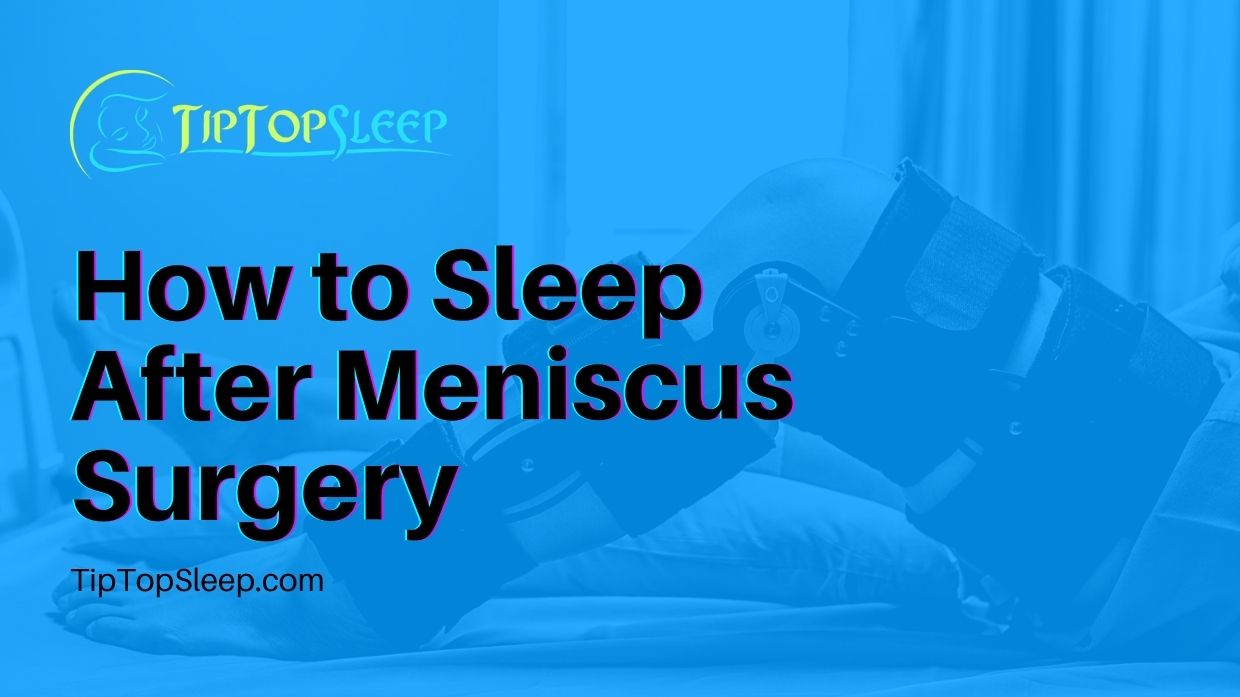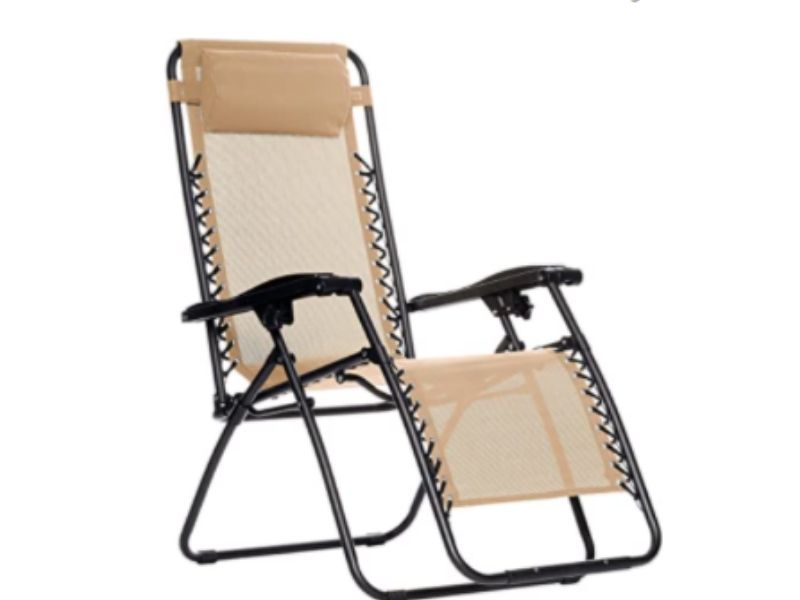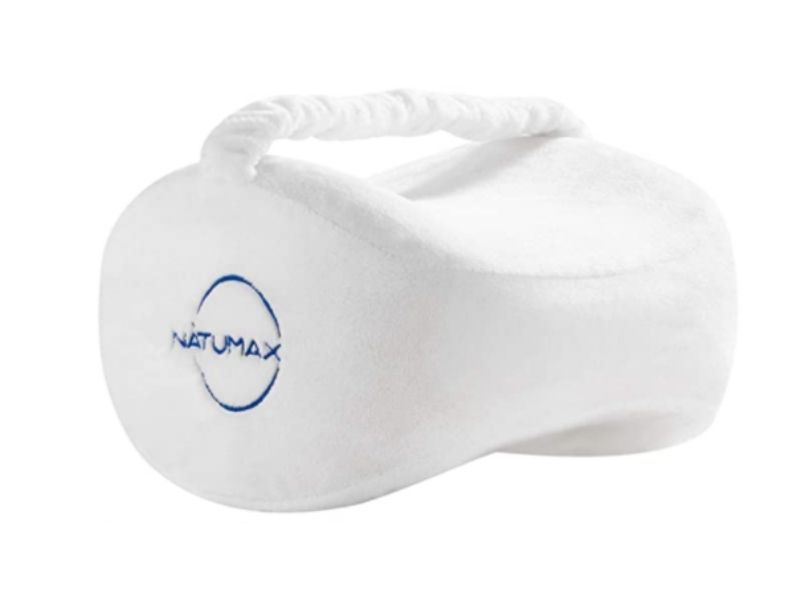It’s quite a challenge to sleep after any surgery. However, getting a good night’s rest is essential for faster recovery. In this post, let’s discuss an important question – ‘How to Sleep After Meniscus Surgery?’
But before we address that, let’s talk more about the operation.
What is a Meniscus Surgery?
When we say meniscus, this refers to the crescent-shaped area of cartilage which is located above your tibia. Its purpose is to act as a cushion for the knee joint. Think about a stabilizer or a shock absorber where it can also reduce the friction every time your knee moves.
Now, when you have a torn meniscus, this could be extremely painful when you don’t seek medical attention right away. While the pain is bearable at first, the inflammation will start, and that’s where you can’t already bear it. Other common symptoms are swelling, stiffness, and difficultly moving your knee. Your condition will aggravate if you keep on participating in high-intensity activities.
Surgery isn’t always the first recommendation, most especially if the meniscus tear is small and occurred on the outer portion of your knee. Chances are, it will heal on its own.
However, if it is the inner portion that needs to be treated, surgery might be required. This is because it receives a poor blood supply, and it couldn’t heal on its own.
Techniques for Sleeping After Meniscus Surgery
After your surgery, you need to get as much rest as you can to recover well. Here are a few things to remember to ensure that you sleep without aggravating your knee.
Clean Your Bandages
This is a critical step you must never skip before you sleep. You need to make sure that the dressing around your surgery is in place. Check if it is still free from moisture so that you can prevent infection. If necessary, change it before you go to sleep.
Kindly use an antiseptic solution every night to clean your wounds.
Take Pain Medications
If you are to take medications to relieve pain, you must check with your doctor first. The common ones are Aleve, Advil, and Mortin. But to make sure you will not have an allergic reaction, get approval first.
You must follow the prescription and how you are to administer the medications.
Use a Zero Gravity Chair
If you can, try to sleep using a zero-gravity or a reclining chair. A number of studies suggest that this position could promote stability on the operated knee and encourages proper blood circulation.
Amazon Basics Outdoor Zero Gravity Lounge Folding Chair
Check the latest price on Amazon.
This zero gravity chair is made for outdoors, which tells us how durable the quality is. It has a 200-pound weight capacity but is lightweight. Many of its users enjoy and relax using this chair. If you want to take a nap, this could be a good option.
Elevate Your Knee
It’s best if you sleep with your knee raised, but make sure that it isn’t bent. This position is ideal because you can avoid bumping the incision site, resulting in bleeding and even infection. Try to do this for the first few days. But remember, this could be uncomfortable first. A great sleeping aid you should invest in right now is a knee pillow. Here’s a good brand that has been helping many patients.
NATUMAX Knee Pillow
Check the latest price on Amazon.
What’s impressive about the NATUMAX Knee Pillow is you can use it in a variety of ways. Plus, washing and cleaning it is easy. You can just toss it to your machine and use it again at night time. Many people who encountered injuries swore that this is ‘The One’, and we perfectly understood why.
Sleep On Your Non-Surgery Side
Some of us are not comfortable sleeping on our backs. The good news is, you can sleep on your side, but make sure it’s the non-surgery one. What you can do is place a pillow in between your knees. Fortunately, the product we shared above allows you to do this comfortably.
Practice Breathing Exercises
This might seem like an odd tip, but breathing exercises could help patients who couldn’t sleep properly right after the surgery. Proper breathing means you take deep breaths. Inhale through your nose and exhale through your mouth. Repeat this 10 times and just follow your own pace.
What breathing exercises do is promote good circulation. And at the same time, it could lessen the pain.
Minimize Distractions
Lastly, as much as possible, avoid distractions. This means you have to let go of your gadgets or turn off your TV.
We do understand that there are distractions that could be out of your control. For example, if you live in an urban area, the noise could be 24/7. In that case, you can buy noise-cancelling headphone or earplugs. Just try to think of ways on how you can sleep soundly at night so you can recover the fastest possible time.
Taking Care of Yourself After a Meniscus Surgery
First of all, you have to stay away from doing intense activities. You can also use ice to alleviate pain and swelling. It’s recommended that you apply ice periodically throughout the day. In addition, elevating your knee and proper compression should help you too. Just remember not to bondage your knee too tight to ensure that there is proper blood flow.
You might also be recommended to wear an immobilizer brace and physical therapy.
As a rule of thumb, you must visit your doctor on the scheduled date for check-ups. That way, they can see how much you are recovering. And from there, they could provide adjustments and appropriate recommendations.
Perhaps, you are interested if you can already work after your meniscus surgery. Here’s a video that can answer you.
Recovery Period
The recovery period varies from person to person. Some of the factors could be your age, current health condition, the type of injury, and the type of surgery. Some may fully recover within three weeks, but others might take three months.
Conclusion
You do not have to be scared if your doctor suggests that you undergo meniscus surgery. More often than not, you will be an outpatient, and you could go home a few hours after. Yet again, the success of your surgery depends on how you take care of yourself. Knowing how to sleep after meniscus surgery is essential. Again, it might be hard for you in the first few days, so a little bit of patience is necessary.




